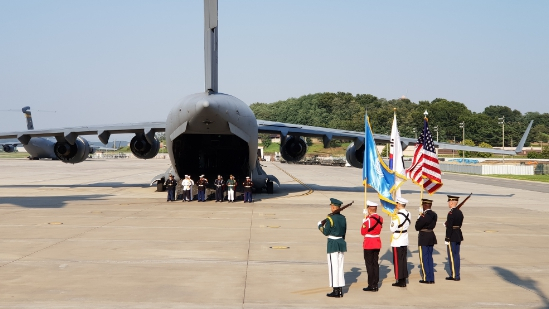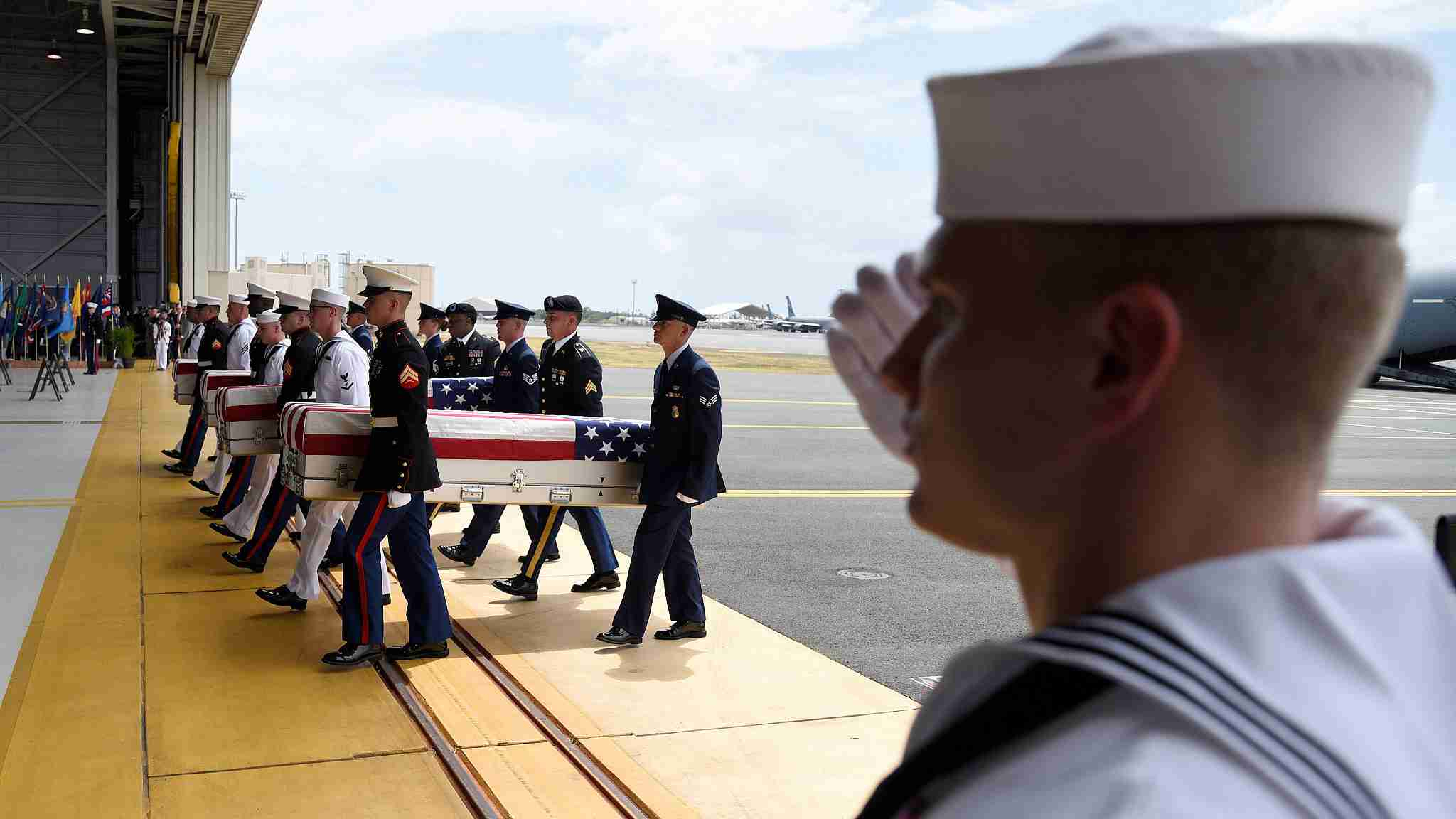
World
13:49, 02-Aug-2018
Remains of presumed US war dead in Korean War arrive in Hawaii
Updated
13:44, 05-Aug-2018
CGTN’s Jack Barton
02:16

The remains of 55 people who died during the Korean War between 1950 and 1953 were sent to Pearl Harbor on Wednesday from the Democratic People’s Republic of Korea (DPRK).
Before being repatriated to the US, a ceremony was held in an aircraft hangar at Osan Airbase, which is just south of Seoul. About 500 dignitaries including Commander of the US Forces in Korea Vincent K. Brooks attended the ceremony.
“Encouraged by recent cooperation with North Korea (DPRK) on this humanitarian effort that enabled the transfer of 55 sets of remains on the 27th of July, last Friday, we have gathered," said the commander.

Caskets containing the remains of presumed American servicemen from the Korean War arrive at Joint Base Pearl Harbor-Hickam in Honolulu, Hawaii, US, August 1, 2018. /VCG Photo
Caskets containing the remains of presumed American servicemen from the Korean War arrive at Joint Base Pearl Harbor-Hickam in Honolulu, Hawaii, US, August 1, 2018. /VCG Photo
After the ceremony, the remains were transferred to two transport planes waiting just outside on the tarmac. Each coffin was carried by an honor guard comprised of troops from all branches of the US military as well as from many of the other nations who fought during the Korean War.
The remains in Hawaii will be taken to the world’s largest skeletal forensic laboratory, where scientists, including DNA experts, anthropologists and archaeologists will attempt to determine whether they are indeed US serviceman.
The remains of more than 7,700 US troops remain unaccounted for from the Korea War, and about 5,300 were lost in what is now the DPRK.
The repatriation of the remains was a key part of the agreement struck between DPRK leader Kim Jong Un and US President Donald Trump in Singapore last June. The handover of the remains marks a definite step forward for diplomacy between Pyongyang and Washington and has led to fresh hope, despite growing concern the DPRK may still be pushing ahead with its nuclear program.
8165km

SITEMAP
Copyright © 2018 CGTN. Beijing ICP prepared NO.16065310-3
Copyright © 2018 CGTN. Beijing ICP prepared NO.16065310-3